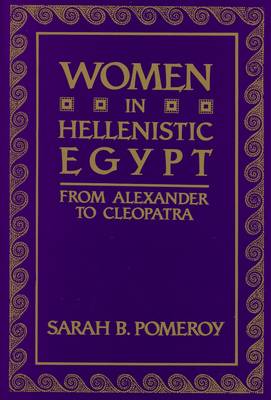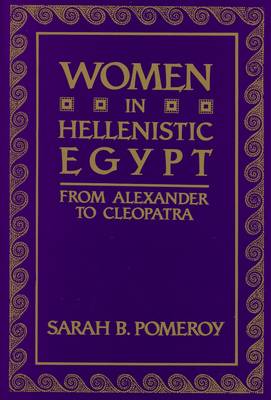
- Retrait gratuit dans votre magasin Club
- 7.000.000 titres dans notre catalogue
- Payer en toute sécurité
- Toujours un magasin près de chez vous
- Retrait gratuit dans votre magasin Club
- 7.000.0000 titres dans notre catalogue
- Payer en toute sécurité
- Toujours un magasin près de chez vous
Description
Using evidence from a wide array of sources, Sarah Pomeroy discusses women ranging from queens such as Arsinoë II and Cleopatra VII to Jewish slaves working on a Greek estate.
After its conquest in 331 B.C., Egypt became the center of the Hellenistic world, attracting men and women from other parts of the Mediterranean area. In this cosmopolitan and mobile society, Greek women of the ruling class had unprecedented opportunities and were able to employ some of the legal freedoms enjoyed by their Egyptian counterparts.
Using evidence from a wide array of sources including literature, papyri, inscriptions, coins, and terra-cotta figurines, Sarah Pomeroy discusses women ranging from queens such as Arsinoë II and Cleopatra VII to Jewish slaves working on a Greek estate. This edition contains a new foreword, additional information, and an updated bibliography by the author.
Spécifications
Parties prenantes
- Auteur(s) :
- Editeur:
Contenu
- Nombre de pages :
- 272
- Langue:
- Anglais
Caractéristiques
- EAN:
- 9780814322307
- Date de parution :
- 01-02-90
- Format:
- Livre broché
- Format numérique:
- Trade paperback (VS)
- Dimensions :
- 128 mm x 192 mm
- Poids :
- 312 g

Les avis
Nous publions uniquement les avis qui respectent les conditions requises. Consultez nos conditions pour les avis.






